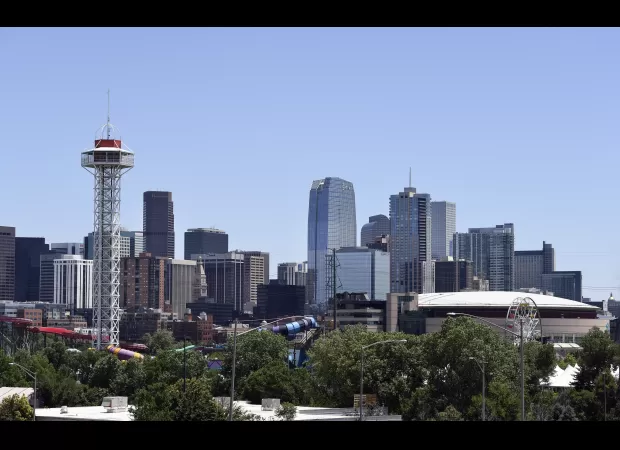Lawsuit challenges Denver's limitations on using natural gas in constructions.
Organizations are suing to reverse Denver building codes that aim to reduce natural gas use in buildings to combat climate change.

A group of national and Colorado organizations have joined forces to challenge the building codes implemented by the city of Denver. These codes were put in place to combat the effects of climate change by limiting the use of natural gas in buildings. The lawsuit, filed on Wednesday in U.S. District Court in Denver, specifically takes aim at two city ordinances.
The first ordinance prohibits the use of natural gas furnaces and water heaters in new commercial and multifamily buildings. The second ordinance, set to take effect in 2025, requires the installation of electric systems when gas furnaces and water heaters are replaced in existing buildings, as long as it is deemed cost-effective.
Similar bans on natural gas equipment have been implemented in other communities in Colorado and across the country, as part of a larger effort to reduce greenhouse gas emissions and improve air quality. In Denver alone, it is estimated that buildings and homes produce nearly two-thirds of the city's heat-trapping greenhouse gases.
According to a website that tracks policies aimed at reducing emissions from buildings, there are currently 135 local governments and six states with similar laws in place. In 2022, Crested Butte approved a requirement for electric heating and water heaters in all new residential and commercial buildings.
However, a 2023 federal appeals court decision has raised questions about the legality of these restrictions on natural gas equipment. The court ruled that a similar ban in the city of Berkeley, California violated a federal law that gives the Department of Energy the authority to set energy efficiency standards for appliances.
The challenge to Denver's ordinances argues that they also violate the federal Energy Policy and Conservation Act, which sets energy conservation standards for consumer products. The lawsuit also claims that these requirements will drive up costs for businesses, jeopardize jobs, and make housing, energy, lodging, and food service more expensive.
Similar concerns were raised in a lawsuit filed in April by the Colorado Apartment Association, the Apartment Association of Metro Denver, Colorado Hotel and Lodging Association, and NAIOP, a commercial real estate association. This complaint also objects to state building codes that aim to electrify buildings.
A spokesperson for Denver's Office of Climate Action, Sustainability, and Resiliency declined to comment on the ongoing litigation.
The Restaurant Law Center, a national organization, has also weighed in on the issue, stating that there is already a federal framework in place that sets nationwide standards for appliance energy use and efficiency. They argue that state and local regulations, like those in Denver, are preempted by these federal standards.
Other plaintiffs in the lawsuit include the National Association of Home Builders of the United States, Colorado Restaurant Association, Home Builders Association of Metropolitan Denver, American Hotel & Lodging Association, National Apartment Association, and National Propane Gas Association.
The Restaurant Law Center also expressed concern about the impact these regulations will have on businesses, particularly restaurants that rely on gas-fired cooking for the flavor and style of their menu offerings. They predict that these regulations will not only drive up housing prices, but also force restaurants to completely overhaul their businesses or even close down.
Stay informed about the latest business news by signing up for our Economy Now newsletter.






